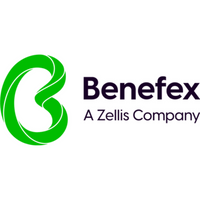What makes employees happy?

According to Dr Timothy Sharp at The Happiness Institute, happiness is the removal of worry from one's life.
So what do employees worry about? What's keeping your colleagues awake at night?
According to a survey of 2,000 people for The Independent newspaper last year, the top worries facing people in Britain today are:
1. Getting old
2. Money and/or savings
3. Low energy and/or diet
4. Debt
5. Job security
6. Ageing and/or appearance
Now as an employer, there's not much you can do about an employee's wrinkles unless the HMRC starts to allow salary sacrifice botox, but you can certainly have an impact on the rest.
It's not surprising that two out of the six biggest worries are money related. Employees are concerned about day to day finances, the increasing cost of living, saving for retirement and protecting their families. We could also guess that part of the reason people worry about losing their jobs is the lack of income should that happen, so it's a big issue for employees.
There are a wealth (pun intended) of employer sponsored financial wellbeing initiatives available in the market.
The importance of health and wellbeing
Employee health and wellbeing has been at the top of HR's agenda for many years and recent advances in wearable technology have allowed HR to encourage more and more employees to live a healthy lifestyle. Employers should consider benefits as simple as free fruit in the office and subsidised gym memberships as well as mental health initiatives like mindfulness in the workplace and the reduction of workplace stress.
As well as examining what they worry about, we can also look at what employees want from their employer. One of the largest wants is flexibility. According to books like ‘What motivates us’ and ‘Why work here?’, employees want to have a say in how and when they work.
Generation Y (now the largest generation in history and the largest in your workplace) is actively looking for employment that gives them synergy between their personal and professional lives – and would take that over money.
Employees also want to see that flexibility in their compensation. They don't want to be given benefits, they want to choose them. They also want their compensation to be aligned with lifestyle – a lifestyle that changes constantly as their priorities change (marriage, house buying, gap years etc.)
The need for transparency
According to the book ‘Why work sucks and how to fix it’, employees also want transparency. Again, especially the younger generations (who now make up half of your workforce) want you to be open and honest about everything. If you can't offer certain benefits, be honest about it. For example, if you can't afford to fund a benefit like salary sacrifice cars, tell them why. We hear lots of frustrations from employees who complete surveys on what benefits they want and never hear why the top results never appear.
You can also try to be honest with employees about what you are considering and inviting employees to be part of the decision. You can even invite them when providers come to pitch so they too can ask questions about the service offering. Providers are really happy to do this and, if you have a union, they love to be involved in these decisions.
Moving onwards - and upwards
According to Forbes, the most important thing employees want from their employer is to feel like they are moving forwards. HR magazine reports that personal and professional development is the one key factor in being able to retain staff. Blessing White have even gone as far as to suggest that development in the workplace is “the new currency employers can trade with”.
However, despite its importance, many employers are still ignoring employee development. The fifth annual millennials survey in conjunction with Deloitte, surveyed more than 7,000 employees. More than 63% said they felt their skills are not fully being developed at work.
This article was provided by Benefex
In partnership with Benefex
The home of award-winning employee benefits, reward, recognition, & communications.







